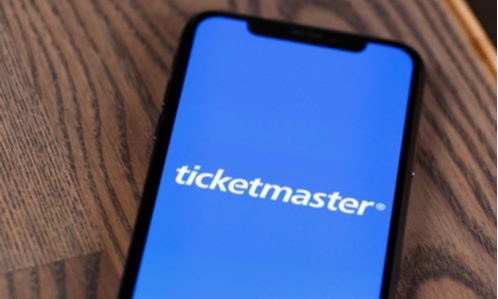DOJ Suit Centers On Ticketmaster’s SafeTix, Alleging Anti-Competitive Market Control

The Department of Justice (DOJ) has criticized Ticketmaster’s SafeTix system, which the company markets as a secure method for accessing event tickets. The DOJ argues that the system’s real intent is to suppress competition, solidify Ticketmaster’s market dominance, and enhance its data collection capabilities.
According to Ticket News, the DOJ’s amended complaint, filed last week, describes SafeTix as a strategic maneuver to entrench Ticketmaster’s position in the ticketing industry. The lawsuit, now supported by ten additional states, contends that SafeTix undermines rival ticketing services by complicating ticket transfers and driving consumers to stick exclusively with Ticketmaster’s platform.
SafeTix, introduced over five years ago as part of Ticketmaster’s “Presence” suite, employs a dynamic barcode system. This technology ties tickets to the Ticketmaster app or the specific event venue, making them difficult to transfer outside of the platform. The system’s ever-changing barcodes, which cannot be captured in screenshots, aim to limit the effectiveness of secondary ticketing platforms and discourage fans from using alternative services.
The DOJ’s complaint highlights that SafeTix’s design not only consolidates Ticketmaster’s market position but also hinders competitors by complicating ticket resales. This strategy forces users to create Ticketmaster accounts for transactions, making it challenging for other services to offer a smooth resale experience and thereby discouraging new market entrants.
Ticket News further reports that internal documents from Ticketmaster reveal the company’s strategic intent behind SafeTix. A 2014 meeting document described the “non-transferable digital ticket” as a potential “game-changer,” while a 2017 document labeled the rotating barcode as a “product enhancement” aimed at increasing market share.
Another critical aspect of SafeTix, as detailed in the complaints, is its role in expanding Ticketmaster’s consumer data repository. The system provides Ticketmaster with comprehensive information not only about the ticket purchaser but also about individuals who receive transferred tickets. This extensive data collection capability offers Ticketmaster a significant competitive edge, enabling more targeted marketing and sales strategies.
A notable excerpt from the amended complaint cites Live Nation’s CEO, who purportedly stated that SafeTix allows the company to identify not only the original ticket buyer but also their accompanying guests, thereby providing unprecedented consumer insights.
The industry has long been aware of the implications of SafeTix, though consumer advocates face strong resistance from Live Nation’s substantial lobbying efforts. The ongoing legal dispute continues to spotlight the complexities and competitive dynamics within the ticketing industry.
Source: Ticket News
Featured News
Big Tech Braces for Potential Changes Under a Second Trump Presidency
Nov 6, 2024 by
CPI
Trump’s Potential Shift in US Antitrust Policy Raises Questions for Big Tech and Mergers
Nov 6, 2024 by
CPI
EU Set to Fine Apple in First Major Enforcement of Digital Markets Act
Nov 5, 2024 by
CPI
Six Indicted in Federal Bid-Rigging Schemes Involving Government IT Contracts
Nov 5, 2024 by
CPI
Ireland Secures First €3 Billion Apple Tax Payment, Boosting Exchequer Funds
Nov 5, 2024 by
CPI
Antitrust Mix by CPI
Antitrust Chronicle® – Remedies Revisited
Oct 30, 2024 by
CPI
Fixing the Fix: Updating Policy on Merger Remedies
Oct 30, 2024 by
CPI
Methodology Matters: The 2017 FTC Remedies Study
Oct 30, 2024 by
CPI
U.S. v. AT&T: Five Lessons for Vertical Merger Enforcement
Oct 30, 2024 by
CPI
The Search for Antitrust Remedies in Tech Leads Beyond Antitrust
Oct 30, 2024 by
CPI